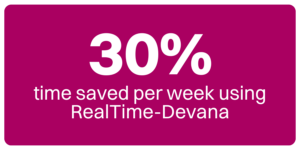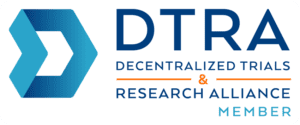This webinar was published on the CRAACO website. You can view the complete webinar here.
In a recent CRAACO (Clinical Research as a Care Option) webinar, leaders from ObjectiveHealth and RealTime-Devana explored how modern technology is transforming clinical research into a viable care option. The discussion highlighted challenges like patient awareness and logistical barriers, emphasizing patient-first approaches and advanced tools to improve accessibility, efficiency, and inclusivity. Integrating clinical trials into standard healthcare is enabling broader participation and enhancing research quality.
The Low Participation Dilemma
One of the most pressing challenges in clinical research is the low number of patients introduced to clinical trials, and even fewer who participate. According to Barry Lake, founder of Devana Solutions, almost 70% of patients are open to participating in trials if introduced properly. This statistic highlights the need for patient-centric strategies to increase engagement.
Colleen Hoke, CEO and co-Founder of ObjectiveHealth, emphasized the importance of integrating clinical research at the point of care. ObjectiveHealth has democratized access to trials by embedding small teams in medical practices, integrating with electronic health records (EHR), and using algorithmic approaches to match patients with trials effectively.
How Technology is Transforming Patient Engagement for the Better
Technology plays a pivotal role in overcoming enrollment challenges, improving patient diversity, and aligning trials with the right participants. ObjectiveHealth uses tools like Objective Screen to curate patient lists in real-time, saving thousands of hours that coordinators would otherwise spend manually searching through EHRs.
Barry explained how RealTime-Devana supports these efforts by tracking milestones such as feasibility surveys, regulatory submissions, and patient enrollment timelines. This transparency boosts operational efficiency and also reduces trial delays that cost sponsors millions of dollars and, more critically, delay access to life-saving therapies.
The Hybrid Model and Decentralized Trials
The pandemic accelerated the adoption of decentralized clinical trials (DCTs), shifting from a buzzword to an operational necessity. However, as Colleen pointed out, a hybrid model—combining centralized infrastructure with point-of-care integration—offers the best of both worlds. This approach allows for personalized engagement with patients while leveraging technology to streamline processes and improve retention in trials involving complex diseases like fatty liver disease.
Reducing High Screening Failures
Screen failures represent a significant challenge in clinical research, both financially and emotionally. As Colleen shared, an 80% screen failure rate in certain trials could mean screening hundreds more patients to meet enrollment goals. Beyond the monetary impact, the human cost is profound. Patients who “fail” a trial often feel disappointment and lose trust in the research process.
By using advanced algorithms and data analytics, ObjectiveHealth has reduced screen failure rates by 9%, demonstrating how technology can create better patient experiences and accelerate trial timelines.
Data Transparency: A Game Changer
Data transparency emerged as a recurring theme. Lake emphasized the importance of aligning top-performing sites with sponsors through performance metrics. Transparent data allows sponsors to identify sites best suited to specific therapeutic areas, bringing therapies to market faster. By leveraging the RealTime-Devana platform, users can save up to 30% of time per week – including over 14 hours per study activation – accelerating cycle times and saving time and money across the board.

Colleen echoed this sentiment, highlighting how electronic solutions like Devana and Objective View enable real-time collaboration between sponsors and sites. This proactive approach fosters stronger partnerships and ensures trials remain on track.
Collaboration Across the Industry
The conversation also touched on the growing collaboration between site networks, sponsors, and contract research organizations (CROs). By sharing algorithms and insights across networks, the industry can collectively reduce screen failures and improve trial efficiency without compromising patient privacy.
“Why can’t we benefit the entire trial with shared knowledge?” Colleen asked. Her call for transparency and collaboration encapsulates a future where technology and partnerships drive progress across the entire clinical trials industry.
Conclusion: Better Data, Better Outcomes
The integration of clinical research as a care option relies on a synergy between technology, patient-first strategies, and collaborative ecosystems. Modern electronic solutions like Devana are enabling research organizations to streamline processes, reduce inefficiencies, and provide better care to patients.
As Barry succinctly put it, “Better data leads to better decisions and, ultimately, better outcomes.” By continuing to innovate and align efforts across the industry, clinical trials can evolve into a mainstream care option that transforms lives.
This webinar served as a call to action for the industry, emphasizing the need for collaboration, transparency, and innovation to make clinical research a more inclusive and effective care option. By embedding trials into everyday healthcare workflows and leveraging cutting-edge technology, the industry is poised to transform patient outcomes and bring life-saving therapies to market faster than ever before.
View the complete webinar here.
About RealTime-Devana
RealTime-Devana is a holistic business intelligence platform designed specifically for research site organizations, driving transparency and accountability across all functional groups. From pipeline management and streamlined study start-up through to historical trial metrics, Devana provides one source of truth for all your clinical trial data and processes. Improve turnaround times and stand out to CROs and sponsors with Devana’s powerful workflow improvements and data analytics.






